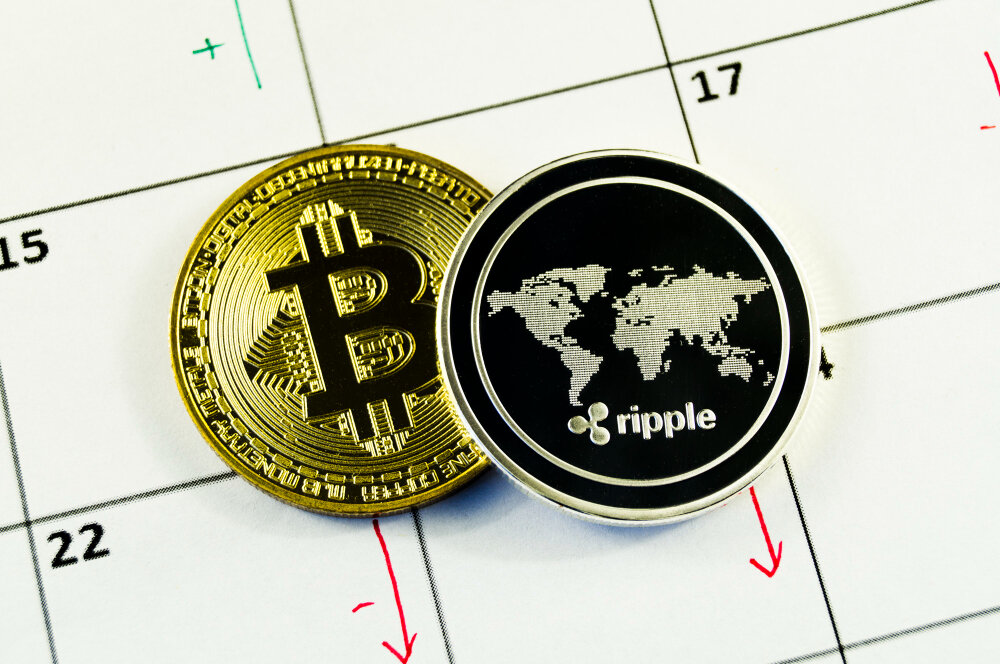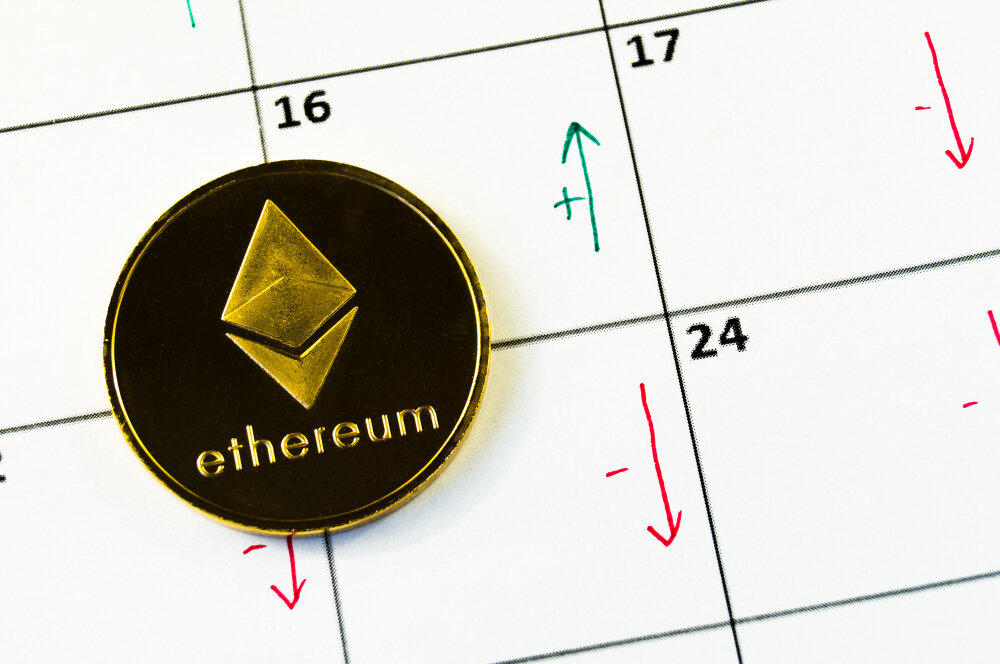When it comes to the world of cryptocurrency, it's impossible to ignore the massive influence that Bitcoin has had.
However, in recent years, we have seen the emergence of countless altcoins that have posed a legitimate challenge to Bitcoin's dominance. This phenomenon has been referred to as the "rise of altcoins."
Bitcoin still reigns supreme in market capitalization, but altcoins such as Ethereum, Ripple, and Litecoin have all achieved impressive valuations.
What Are Altcoins?
Altcoins, or alternative coins, are digital currencies outside Bitcoin's original cryptocurrency. They are often referred to as "altcoins" because they are alternatives to Bitcoin.
Altcoin daily offers a variety of features and benefits that may not be available with Bitcoin. For example, some altcoins have faster transaction times than Bitcoin, while others offer increased privacy and security.
What is Altcoin Daily?
Altcoins are digital assets that use cryptography to secure transactions and control the creation of new units. They are similar to Bitcoin in many ways but differ in their underlying technology and features.
Altcoins can be used for various purposes, including payments, investments, trading, etc. Unlike Bitcoin, which is based on a proof-of-work consensus algorithm, many altcoins use different consensus algorithms, such as proof-of-stake or delegated proof-of-stake.
These algorithms allow users to earn rewards for verifying transactions on the network or staking their coins to help secure the network. Additionally, some altcoins have additional features, such as smart contracts or decentralized applications (dApps).
Advantages of Altcoins
Altcoins offer several advantages over traditional investments. One advantage is their potential for higher yields than traditional investments such as stocks and bonds. This is because altcoin daily often has lower market capitalization than traditional investments, meaning there is more room for growth and appreciation.
Additionally, altcoins can provide diversification benefits by reducing correlation with traditional markets. Investing in multiple altcoins can spread risk across multiple assets and reduce exposure to any asset class.
Another advantage of altcoins is the potential for technological innovation within specific industries. For example, some altcoin projects focus on developing solutions for healthcare or finance that could revolutionize how these industries operate.
These projects often utilize blockchain technology to create secure and transparent systems that enable users to transact directly with each other without relying on third-party intermediaries.
Additionally, many altcoin projects have utility tokens that allow users to access certain features or services within the project's ecosystem.
Different Types of Altcoins
Altcoins can be used for various purposes, including trading, investing, and making payments. This article will explore the different types of altcoins available and highlight some of the most popular ones.
There are several different types of altcoins available daily. Some of the most common categories include:
Cryptocurrency Coins
Cryptocurrency coins are digital currencies that use cryptography to secure transactions and control the creation of new units. These coins typically have their blockchain networks and can be used for various purposes.
Examples of cryptocurrency coins include Bitcoin (BTC), Ethereum (ETH), Litecoin (LTC), Ripple (XRP), Dash (DASH), Monero (XMR), Zcash (ZEC), and more.
Utility Tokens
Utility tokens are digital assets that give users access to a specific product or service. These tokens can purchase goods or services from a company or platform. Examples of utility tokens include Binance Coin (BNB), Huobi Token (HT), and MakerDAO's DAI stablecoin.
Security Tokens
Security tokens are digital assets representing an investment in a company or project. These tokens give holders certain rights, such as voting rights or dividends from profits generated by the project they invested in.
Examples of security tokens include Polymath's POLY token and tZero's TZROP token.
Stablecoins
Stablecoins are digital assets designed to maintain a stable value over time, backed by an asset such as gold or fiat currency like US dollars or euros. Examples of stablecoins include USDTether (USDT) and Dai (DAI).
Popular Altcoins
Now that we have explored the significant categories of altcoins let's take a look at some of the most popular altcoins within each category:
Ethereum (ETH): A decentralized platform for smart contracts developed in 2015 by Vitalik Buterin; it is currently the second-largest cryptocurrency by market capitalization, with a total market cap exceeding USD 400 billion as of June 2021.
Litecoin (LTC): A peer-to-peer cryptocurrency created in 2011 by Charlie Lee, it is currently one of the top 10 cryptocurrencies by market capitalization, with a total market cap exceeding USD 20 billion as of June 2021.
Binance Coin (BNB): The native token for Binance Chain; it is used to pay fees on Binance DEX and allows users to receive discounts when trading on Binance Exchange; it is currently one of the top 10 cryptocurrencies by market capitalization with a total market cap exceeding USD 50 billion as of June 2021.
Huobi Token (HT): The native token for Huobi Global; it is used to pay fees on Huobi Global Exchange and allows users to receive discounts when trading on Huobi Global Exchange; it is currently one of the top 20 cryptocurrencies by market capitalization with a total market cap exceeding USD 10 billion as of June 2021.

Risk Management and Security Measures
Investing in cryptocurrencies, including altcoins, can be a highly profitable venture. However, it also comes with its unique set of risks. The cryptocurrency market is notoriously volatile and unpredictable, so investors must take adequate measures to manage risk exposure.
In the context of altcoin investments, risk management involves identifying potential risks, evaluating their likelihood and potential impact, and developing strategies to mitigate or avoid them. Risks associated with altcoin investments can include market volatility, technological, regulatory, and operational risks.
Market Volatility
Altcoin daily markets are highly volatile, and prices can fluctuate rapidly over short periods. This means that investors need to be prepared for significant losses and gains.
To mitigate market volatility risk, investors can diversify their portfolios by investing in multiple altcoins across different sectors. This helps to spread risk and reduce the impact of any single coin's price movements.
Technology Risks
Altcoin investments come with technology risks as well. These risks include cyber-attacks, hacking, and data breaches, leading to losing assets or sensitive information.
To protect their investments from these risks, investors must take adequate security measures, such as using secure wallets and two-factor authentication.
Regulatory Risks
Governments and financial institutions worldwide are still grappling with how to regulate and tax cryptocurrencies, which can lead to uncertainties and restrictions on the use and trading of altcoins.
Investors must stay informed about evolving regulatory frameworks and comply with all applicable laws and regulations.
Operational Risks
Operational risks are associated with the day-to-day operations of altcoin investments. These risks can include exchange failures, liquidity risks, and counterparty risks.
Investors must carefully evaluate the reliability and credibility of altcoin exchanges and other service providers before using their services.
Effective risk management requires a combination of due diligence, research, and strategic planning. Investors must assess their risk tolerance and develop a risk management strategy that aligns with their investment goals.
Security Measures
In addition to risk management, investors must take adequate security measures to protect their daily altcoin investments.
Cryptocurrency theft and fraud are prevalent in the altcoin market, and investors need to be aware of the risks and implement appropriate measures to safeguard their assets. One of the most critical security measures is the use of secure wallets.
Investors should choose a wallet with advanced security features such as two-factor authentication, multi-signature functionality, and cold storage.
Cold storage, which involves storing assets offline, is especially crucial for long-term investors who want to protect their assets from cyber-attacks and hacking attempts.
Investors should also be cautious when using altcoin exchanges and other service providers. They should only use reputable and established exchanges with a proven security and reliability track record.
It is also essential to enable two-factor authentication and other security features when using these services.
Tips for Diversifying an Altcoin Portfolio
Diversifying an altcoin daily portfolio is essential for maximizing investment potential and minimizing risk. Here are some tips for diversifying an altcoin portfolio:
Invest Across Different Sectors
Investing across different sectors can help spread risk and minimize the impact of market volatility on the portfolio. Investors should consider investing in altcoins across sectors such as DeFi, NFTs, gaming, and more.
Evaluate Market Capitalization
Market capitalization is an essential factor to consider when diversifying an altcoin portfolio. Investors should consider investing in a mix of established coins with high market capitalization and promising ones with lower market capitalization.
Consider Risk Tolerance
Investors should evaluate their risk tolerance and adjust their portfolios accordingly. A risk-averse investor may choose to invest in more established coins, while a risk-tolerant investor may choose to invest in newer, more volatile ones.
Regularly Rebalance
Regularly rebalancing the portfolio can help ensure it stays diversified and aligned with investment goals. Investors should consider rebalancing their portfolio quarterly or annually, depending on their investment strategy.
Altcoin News and Market Analysis
Investors must stay informed about altcoin news and market analysis to make informed decisions when investing in these digital assets. By understanding the latest developments in the altcoin space, investors can identify potential opportunities and risks associated with investing in these digital assets.
There are many reliable sources for tracking altcoin trends and developments. For example, CoinMarketCap provides real-time data on the prices of various cryptocurrencies, including altcoins.
Investors can also use CoinGecko to track the performance of different altcoins over time. Additionally, websites such as CryptoCompare provide detailed information about different cryptocurrencies, including their market capitalization and trading volumes.
Crypto news outlets such as Cointelegraph also provide up-to-date coverage of the latest developments in the cryptocurrency space. These outlets often feature interviews with industry experts who provide insights into current trends and developments in the crypto market.
Additionally, Twitter is an excellent source for staying informed about crypto news since many industry leaders regularly post updates on their accounts.
Finally, several online forums are dedicated to discussing cryptocurrency topics, such as Reddit's r/Cryptocurrency subreddit or Bitcointalk forum, where users can ask questions and receive answers from experienced traders and developers.
These forums provide an excellent platform for learning more about specific cryptocurrencies or discussing general cryptocurrency trading or development topics.
PlasBit: Empowering Crypto Holders
Cryptocurrency has become a significant player in the global financial market. With its decentralized nature and secure blockchain technology, crypto has revolutionized how people store and transfer value.
As more people turn to digital currencies, the need for reliable payment solutions is increasing. This is where PlasBit comes in.
PlasBit is a leading provider of financial solutions for cryptocurrency holders. It offers a comprehensive suite of products and services that enable users to securely hold, trade, and efficiently manage their digital assets.
It provides users with an all-in-one platform to access a wide range of services, such as secure wallets, crypto debit cards, and more.
PlasBit's services are designed to empower daily altcoin investors by providing them with the tools they need to make informed decisions when trading cryptocurrencies. The platform offers real-time data protection and confidentiality so users can be sure their personal information is always safe.
Additionally, PlasBit provides users with an intuitive user interface that makes navigating the platform's features and functions accessible.
Conclusion
While Bitcoin remains the largest cryptocurrency by market capitalization, altcoins are quickly gaining ground and offering investors new opportunities for diversification and potentially higher returns.
With continued innovation in blockchain technology, we can expect to see the popularity of altcoins continue to rise over time. Investing in altcoins can be profitable but requires careful consideration and analysis.
However, by implementing the strategies and tips discussed in this article, investors can maximize their investment potential in the unpredictable altcoin market.







